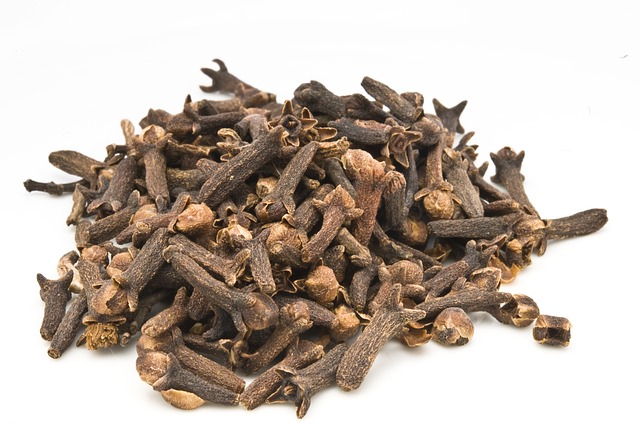Here in the West, we have traditionally used herbs and spices as a way to flavor our food. But in other parts of the world, and for thousands of years, herbs and spices have been celebrated for their medicinal properties.
Luckily, modern researchers are now recognizing that herbs and spices offer a ton of health benefits. And with that in mind, here are 5 herbs and spices you should start cooking with for better health.
1. Sage
The word sage means a very wise person. Well it turns out that sage can improve brain function and memory. Pretty neat, right?
When we take a look at sage’s history, we see that it actually gets its name from the Latin word Salvere, which means “to save.” This is because during the middle ages, it was used to prevent the plague and very quickly became known for its miraculous healing properties.
Current research suggests that sage may be able to improve brain function and memory, particularly in those who suffer from Alzheimer’s.
One of Alzheimer’s disease’s markers is a drop on the level of acetylcholine, which is a chemical messenger in the brain. It turns out sage inhibits the breakdown of acetylcholine.
Studies have shown that individuals with moderate Alzheimer’s, when given sage extract, showed significant improvements in their brain function.
While more testing will be needed, there is promising evidence that sage extract can improve cognition and memory, especially in patients suffering from Alzheimer’s.
2. Peppermint
It’s cool. It’s refreshing. It’s peppermint. While you may think of peppermint as a spice that is used to flavor candy and toothpaste, it actually has a long history of use in folk medicine and aromatherapy.
Quite a few studies suggest that peppermint oil can improve pain management in irritable bowel syndrome (IBS). It seems that peppermint oil works by relaxing the smooth muscles of the colon, which relieves the pain experienced during bowel movements. Peppermint oil has also been shown to reduce abdominal bloating.
And finally, there are some studies that have shown when used in aromatherapy, peppermint can help fight nausea. For this reason, it has been used to help treat women in labor who experience nausea. It has also been used on patients who experience nausea after surgery and C-section births.
3. Turmeric
If you love curry (I am a huge fan myself), you may know that it is turmeric that gives curry its yellow color. Well, turmeric offers many health benefits thanks to one powerful compound it contains called curcumin.
Curcumin is a very powerful antioxidant that helps to fight the oxidative damage caused by free radicals. Curcumin can also boost your body’s own antioxidant enzymes. As you know, oxidative damage is believed to be one of the primary mechanisms behind aging and the development of disease.
But that’s not the only way turmeric benefits our health. It turns out that curcumin is a very powerful anti-inflammatory. In fact, studies have shown it can go head-to-head against some anti-inflammatory prescription medications.
Given that inflammation, along with oxidative stress, is the root of all disease, you begin to understand why eating more curry, or simply adding turmeric to the dishes you love, can have profound effects on your health.
4. Holy Basil
Holy Basil, Batman! Is it really true that Holy Basil can help fight infections and boost your immune system? According to research, it can.
Holy Basil should not be confused with Thai basil or regular basil. Holy Basil is called holy because it is considered a scared herb in India. And studies have shown this sacred herb can inhibit the growth of various types of bacteria, yeast and molds. It has also been found to boost immune function by increasing certain powerful immune cells in the blood.
5. Cinnamon
Without question cinnamon is one of the most beloved of all spices the world over. And, because it’s so incredibly versatile, it can be used in both savory and sweet dishes.
Cinnamon contains a compound called cinnamaldehyde, which is responsible for its medicinal properties. And what exactly are those properties, you may be wondering.
Cinnamon has been shown to offer powerful antioxidant activity, helping to fight inflammation and lower cholesterol and triglycerides in the blood. But where this delicious spice really shines is in helping people manage their blood sugar levels naturally. And it does this in a few different ways:
- It slows the breakdown of carbs in the digestive tract.
- It improves insulin sensitivity.
- It lowers fasting blood sugar levels by 10-29% in diabetic patients, which is very significant.
To receive these benefits, most people take between 0.5 to 2 teaspoons of cinnamon per day. That totals 1 to 6 grams.
It’ time to start thinking differently about herbs and spices. Yes, they sure do make our foods taste great, but they also offer some tremendous health benefits. If you haven’t been using much of these herbs and spices, I encourage you to start.
And if you do eat these herbs and spices on a regular basis, tell us in the comments any health benefits you’ve experienced.
Looking for Other Ways to Manage Your Blood Sugars Naturally?
If you or someone you love lives with type 2 diabetes, you most like manage your blood sugar with prescription medications, which may or may not require you to inject insulin every day, if not multiple times a day.
What if I told you that a diagnosis of type 2 diabetes did NOT have to be a life sentence?
What if you could COMPLETELY reverse your diabetes and do it 100% naturally? Would that change your life for the better?
If you are nodding your head right now, then you will want to definitely watch this important presentation. It will lay out the exact steps one doctor is using to help her patients reverse their diabetes and throw away their prescription medications for good.
Click Here for all the information!
 Validating...
Validating... 





Leave a Reply